| Home > China Feature |
Ancient Chinese Mythology
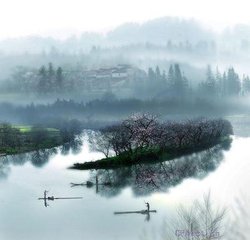
Chinese mythology contains a number of folktales, stories, and other legends. Like most mythologies, it contains a number of creation myths, a flood story, and a large number of gods, goddesses, demi-gods, and mortal champions. Some stories are believed to be based on actual historical events, while others are purely allegorical.
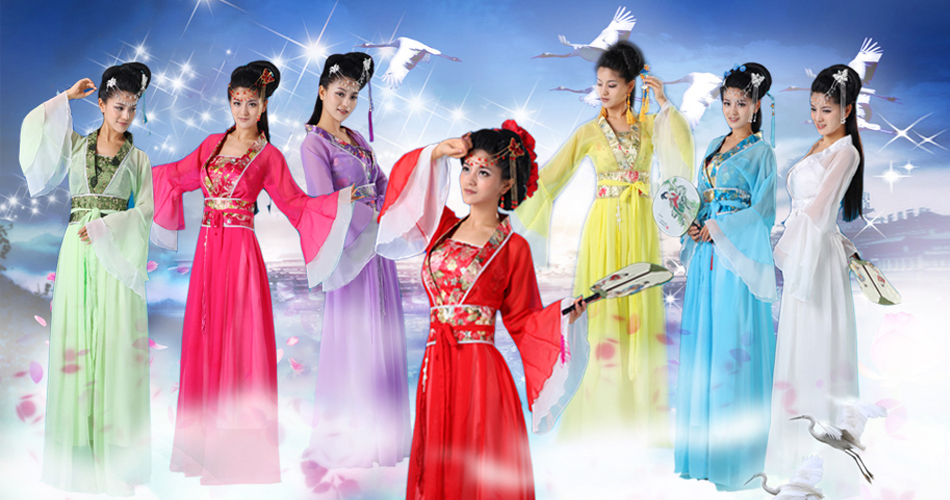
Chinese historians have tracked many Chinese myths back to the twelfth century BC, where they were passed down orally for years before being written. The earliest written myths found were in Shui Jing Zhu and Shan Hai Jing, two very early written manuscripts. Another, the Hei’an Zhuan, contains legends from the Han. Imperial records also contain some myths and legends. However, many Chinese myths continued being passed down orally, whether by word of mouth or in song, before being written down either as short stories or being used as the basis for novels.
Creation Myth
Most cultures develop creation myths early on, but the Chinese did not. In fact, they had no creation myth until after Taoism and Confucianism appeared. Like in most cultures, though, they have several different versions of how humans were created. Some myths say Shangdi created humans, while others give credit to Nuwa, who supposedly created man with her husband, Fuxi. Pangu, a deity first described by Xu Zheng around 200 AD, is also given the title of creator.
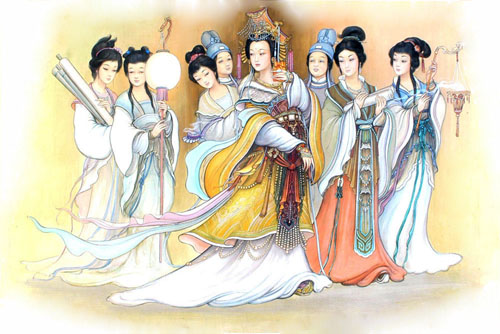
Early Rulers of China
Myths state that early China was ruled by legendary or even god-like emperors. This time, known as the Three August Ones and Five Emperors Period, was from 2850 BC to around 2200 BC, when the Xia dynasty was established. The names of the august ones and emperors vary. While the august ones are sometimes said to be immortal or at least godly, the five emperors are usually listed as mortal, although their reigns were very peaceful and they themselves are usually considered enlightened.
The Chinese Great Flood
As in many mythologies, the Chinese have a flood story. During this time, the Yellow River was known to flood, destroying much of the land. The Huaxia tribe, which lived near the river, placed Gun in charge of controlling the flood. When he failed, he was executed and his son, Yu the Great, put in charge. Yu finally solved the flooding problem, becoming the savior of his tribe and, after the chief died, its leader. While this flood story isn’t on the same scale as those in other myths, the basic concept is the same.
After Yu died, stories vary on who he selected as his successor. Some say it was his son, Qi. Other stories say it was his deputy’s son, Bo Yi. Most scholars accept Bo Yi as his successor. Bo Yi taught his people many things, but while he had the title of successor, Yu actually gave more of the true responsibility to his son. After a few years, his son Qi was more popular than Bo Yi, who had run out of inventions and new ideas. Qi was then named successor. Bo Yi and Qi struggled for the title, with Qi winning. This directly lead to the Xia dynasty. The entire Xia dynasty is often considered at least somewhat mythological, although the Records of the Grand Historian does list 17 rulers of the dynasty. Still, no real archeological evidence has been found to support the records.
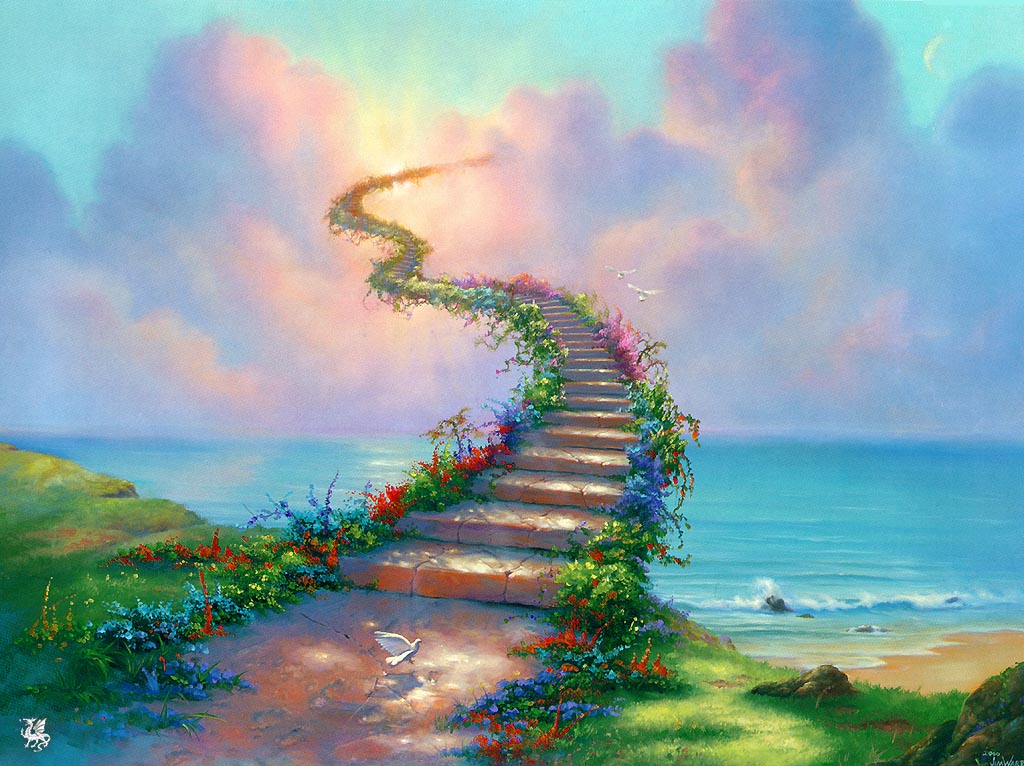
The Chinese Pantheon
Heaven, hell, and earth are all under the control of the Jade Emperor, one of the most powerful Chinese gods. He has a host of heavenly assistants and ministers to help him in his endeavors. He also rewards the just and punishes the wicked. With the introduction of Buddhism, the Jade Emperor was made to be less powerful than Buddha (as show in Journey to the West, when the Jade Emperor must call on Buddha to restrain Wukong the Monkey King).
Dragons play a large part in Chinese mythology, and many are considered to be divine, although not all work for the Jade Emperor or obey his commands. Dragons are associated with water and rivers, and one myth tells of how four dragons created the four great rivers of China. Dragons also bring the rain, and many pray to Ying Long, the dragon god of rain, during droughts.
Mythology and the Various Chinese Religions
Chinese mythology has adapted and influenced beliefs from Confucianism, Buddhism, Legalism, and Taoism. Taoism, a belief founded in China, incorporates some mythology into it, while Buddhism, a belief from India, has influenced mythology. The Taoist idea of a paradise Heaven where the gods lived became part of the Jade Emperor’s myths, while the idea of punishment and reward was taken as the focal point of Legalism.
Art
 more
moreChina Beijing International Diet ...
Recently, The hit CCTV documentary, A Bite of China, shown at 10:40 ...

Exhibition of Ancient Chinese Jad...
At least 8,000 years ago, Chinese ancestors discovered a beautiful...
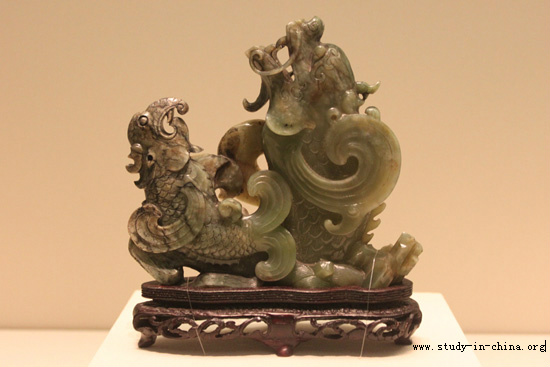
Longmen Grottoes
The Longmen Grottoes, located near Luoyang, Henan Province, are a tr...
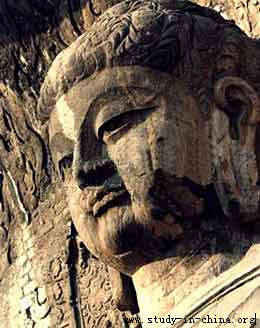
Custom
 more
moreWeb Dictionary
Martial Arts
Celebriting 70 years' efforts in restoring Mogao...
Work is being carried out at the restoration site of cave No 98 a...
Hong Kong Children's Symphony performs in Seattle
Under the theme of Tribute to the Golden Age, a concert featuring a ...
Beijing plan to hold Sand Sculpture Festival
The Beijing Sand Sculpture Festival is in the last phase of prepar...





 print
print  email
email  Favorite
Favorite  Transtlate
Transtlate 







